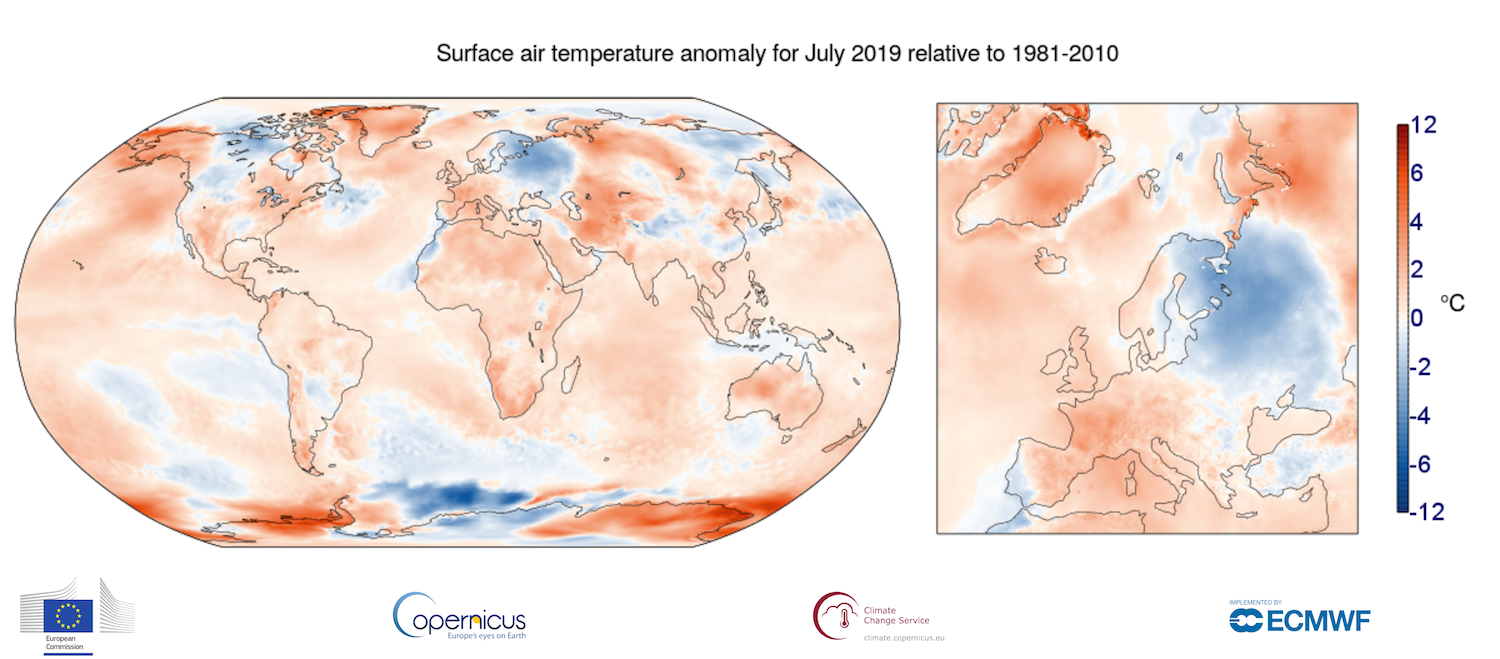
According to European Union's Copernicus Climate Change Programme, July 2019 was the hottest month recorded in history!
July temperatures were just above the 1981-2010 average, with large differences across Europe. Western Europe was warmer than average, largely due to the short but very intense heatwave in the last week of the month, whereas Eastern Europe was generally cooler than average. Overall, July 2019 replaced 2016 as the hottest month on record, according to meteorologists.
Temperatures were particularly high compared to the 1981-2010 average over Alaska, Baffin Island, Greenland, parts of Siberia, the central Asian Republics and Iran, as well as large parts of Antarctica.
Most land and ocean areas saw higher than average temperatures, with the few exceptions including much of western Russia and Canada.
July is generally the warmest month of the year. This is because the large land masses of the Northern Hemisphere warm up faster than the oceans of the Southern Hemisphere can cool down during the northern summer months, and vice versa in the northern winter, so the seasonal patterns of the Northern Hemisphere drive the overall global temperatures. However, the warming trend is not limited to Julys.














